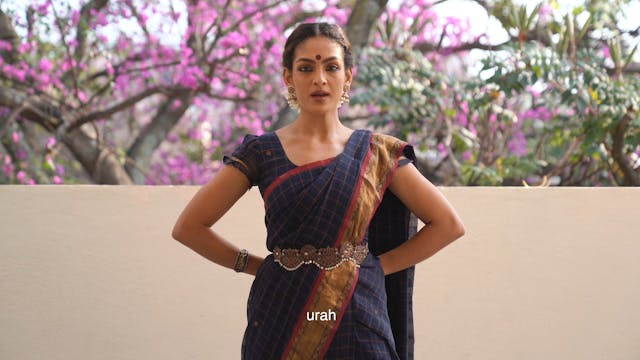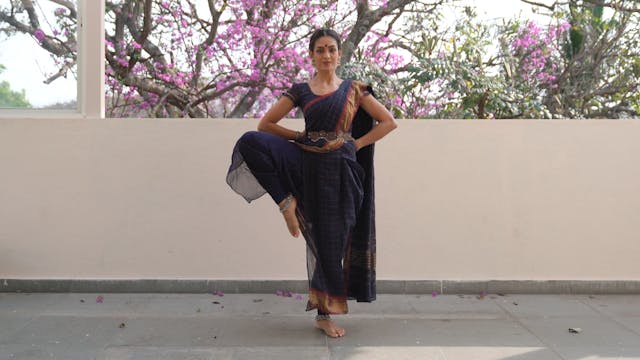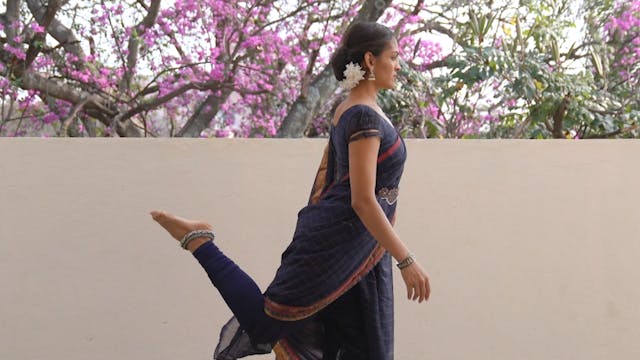Urō bheda Introduction
Playlist 30
•
30s
The chest or Uras is considered one of the Angas according to the Natyashastra. The movements of the chest are used not only for the precise control in the execution of Nritta but also to communicate meaning in the context of gesture.
Please refer to the Shloka below for pronunciation. Please note that the separate movements of the head when put together in a Shloka form 'Sandhis', or compound words in the Sanskrit language. Words like 'ca', 'thatha', mean "and", "also". The separate words for each movement are also given below the shloka.
ĀbhugnamaTha nirbhugnam thaTha caìva prakampitam
udvahitam samam caìva uraha panchavidham smrutam
ābhugnam
Nirbhugnam
Prakampitam
Udvahitam
Samam
Up Next in Playlist 30
-
Urō bheda Shloka
The chest or Uras is considered one of the Angas according to the Natyashastra. The movements of the chest are used not only for the precise control in the execution of Nritta but also to communicate meaning in the context of gesture.
Please refer to the Shloka below for pronunciation. Please no...
-
Jānu bheda Shloka
Jānu bheda according to the Sangīta Ratnākara, is an Upānga. The knees are considered one of the minor limbs.
The movements of the knees are used not only for the precise control in the execution of Nritta but also to communicate meaning in the context of gesture. Some of the positions elucidate...
-
Janghā bheda Shloka
The shins/ shanks are considered one of the Upāngas, or minor limbs according to the Nātyaśāstra
The movements are used not only for the precise control in the execution of Nritta but also to communicate meaning in the context of gesture.
Please refer to the Shloka below for pronunciation. Plea...


